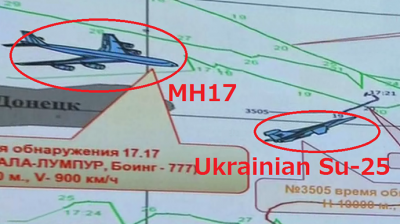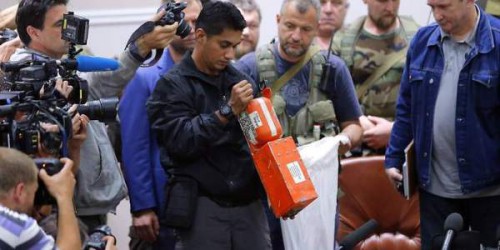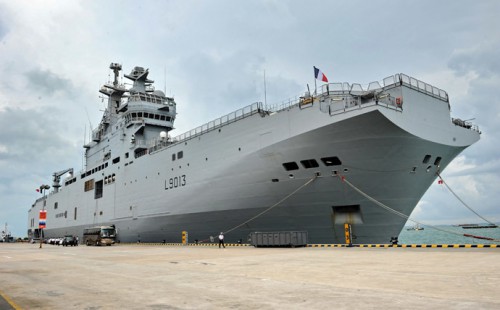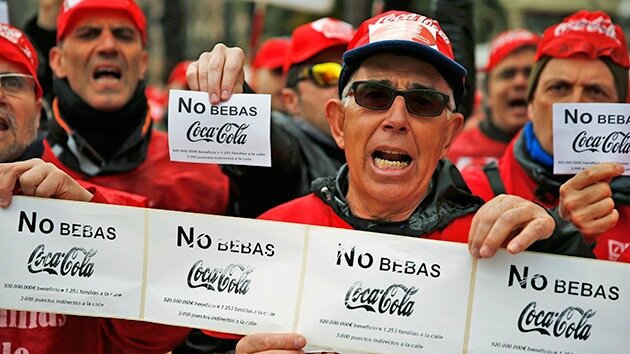On peut bien, si l’on veut, reparcourir l’affaire BNP-Paribas à la lumière de la saga crapuleuse des banques à l’époque de la libéralisation financière. Il faut bien admettre, en effet, que la série a de quoi impressionner, et jusqu’au point de vue défendu depuis le début ici-même, qui tient plutôt la ligne de ne pas céder à la diversion fait-diversière pour maintenir les droits de l’analyse, telle qu’elle doit rendre compte des crises financières non par l’« hypothèse du mal » — Madoff, Kerviel ou qui l’on voudra —, mais par les fonctionnements structuraux, réguliers, intrinsèques, des marchés de capitaux déréglementés. Dans un élan de sensationnalisme irrépressible autant qu’irréfléchi, les médias, toujours pressés de se rendre au plus gros, et au plus bête, se jettent sur tous les délinquants à chemise rayée comme sur des providences — il est vrai que les occasions sont rares de rafler simultanément les bénéfices de la colère populaire, de la belle image du perp walk [1] des puissants — manière d’attester une souveraine indépendance d’avec les « élites » —, et de la critique de la finance. Mais qui ne critique rien.
La fraude comme business model bancaire ?
Car il est bien certain qu’un défilé de traders en combi orange et cadènes aux poignets ne dira jamais rien d’intéressant sur la finance. Obnubilation — par l’image —, et oblitération — de tous les mécanismes ordinaires de la finance —, sont donc les produits les plus certains du barnum systématiquement monté par les médias sur les « grandes affaires » dûment étiquetées « en col blanc ». Prendre la mesure de l’inanité analytique du point de vue criminologique-médiatique requiert, par exemple, de se livrer à une simple expérience de pensée contrefactuelle demandant si la crise financière aurait été évitée si Monsieur Madoff-père s’était retiré ou si Jérôme Kerviel avait fait un BEP de plombier-chauffagiste — bref si les fâcheux n’avaient pas été là. Sauf passion du bouc émissaire et paranoïa en roue libre, la réponse est évidemment non, et les individus délinquants par conséquent renvoyés à leur juste statut : même pas épiphénoménal, simplement secondaire.
Il s’ensuit surtout que comprendre, et puis prévenir, les crises financières exige un peu plus qu’un programme de redressement moral des traders : s’intéresser aux structures mêmes des marchés de capitaux et des institutions bancaires, telles que, dans leur fonctionnement nominal, elles produisent immanquablement ces séquences : surtension spéculative mimétique, renversement brutal des anticipations, crise de liquidité se propageant de proche en proche, pour gagner potentiellement tous les compartiments de marché par le jeu de la course à la réalisation de détresse [2] et de la ruée au cash [3].
Le fait-divers divertit, donc, mais il faut bien avouer qu’au rayon « banque et finance » la récurrence fait-diversière commence à impressionner. Entre Goldman Sachs (spéculation contre ses propres clients), HSBC (blanchiment d’argent, fraude fiscale), Crédit Suisse (fraude fiscale), Barclays (manipulation du Libor), RBS (Libor également), et l’on en passe, la généralisation des comportements crapuleux finirait presque par faire croire à l’existence non pas de simples déviations récurrentes, idée en soi tendanciellement oxymorique, mais à un véritable business model, où une partie du dégagement de profit est très délibérément remise à l’exploitation de situations frauduleuses. Champion bancaire national, mais fier de sa surface globalisée, il n’était que justice — ou bien nécessité — que BNP-Paribas vînt ajouter son nom à ce très illustre palmarès. Six milliards et demi de prune tout de même — il va y avoir du bain de siège au conseil d’administration.
Pertes normales, pertes intolérables
On peut cependant résister à la pente « délictuelle » et considérer l’affaire BNP-Paribas sous un autre angle. Et même deux.
Le premier interroge la perception extrêmement variable que prennent les entités capitalistes de leurs pertes selon leurs origines. Car il y a bien quelque chose comme une hiérarchie dans l’acceptabilité, ou la « normalité », des pertes, dont le sommet est évidemment occupé par les « pertes de marché », verdict incontestable d’une quasi-nature à laquelle il est à peu près aussi vain d’objecter que de demander une diminution de l’accélération de la pesanteur. On notera au passage que les « pertes de marché » sont assez souvent l’effet de spectaculaires conneries des équipes dirigeantes, mauvais choix d’investissement ou management déplorable — on pense ainsi, mais comme un exemple parmi tant d’autres, à Boeing qui, à la fin des années 1990, avait cru malin de céder à la mode du downsizing et avait largement licencié, pour se trouver confronté à peine quelques années plus tard à un retour de croissance… et devoir ré-embaucher en catastrophe, mais en s’apercevant que tous les salariés précédemment virés étaient porteurs d’une longue et irremplaçable expérience, et qu’il allait falloir consentir longtemps des coûts monumentaux d’apprentissage, de sous-productivité, et de sous-qualité [4]. Et l’on tiendra pour l’un des symptômes les plus caractéristiques du néolibéralisme qu’on y fustige sans cesse « l’incurie de l’Etat », quand celle du capital engage des sommes non moins considérables, et aussi le destin direct de salariés qui payent de leurs emplois perdus ou de leurs revenus amputés — mais les élites privées de la globalisation, à l’image du « marché », ont été déclarées par principe les insoupçonnables instances de la rationalité, en fait les seules [5].
Or les « élites » économiques sont plus souvent qu’à leur tour à la ramasse, quand elles ne sont pas carrément incapables de comprendre ce qui se passe vraiment dans leurs entreprises, cas d’incompétence spécialement spectaculaires dans le secteur bancaire, comme l’a prouvé la crise des subprimes — des présidents ventripotents, façon Daniel Bouton, n’ayant pas la moindre idée de la tambouille qui se réchauffe dans leurs propres salles de marché [6], ni des risques réels dont ils laissent se charger leurs bilans. Il en est résulté des pertes consolidées pour le système bancaire international dont le FMI avait tenté l’estimation – entre 2 000 et 3 000 milliards de dollars, soit tout de même le plus imposant bouillon de toute l’histoire du capitalisme —, de sorte que « l’élite » s’est révélée nuisance aux intérêts de ses propres mandataires, pour ne rien dire de ceux de la société dans son ensemble.
Rien de cet exploit retentissant cependant n’a conduit à la moindre remise en question de la compétence générale des banquiers néolibéraux à diriger les banques, et pas davantage à chuchoter à l’oreille des gouvernements, deuxième compétence supposément adossée à la première. Rien non plus n’a perturbé le moins du monde le gros mouvement de glotte qu’a nécessité tout de même d’avaler pertes aussi astronomiques, elles également versées au registre de la loi naturelle du marché contre laquelle il n’y a rien à dire.
Ainsi lorsque « le marché » lui impose la sanction, fut-elle colossale, de sa propre incompétence, le capital ne moufte pas. Mais qu’on vienne lui arracher 0,1% de cotisation supplémentaire et il hurle à la mort. Car voilà le bas, le tout en bas, de la hiérarchie de l’acceptabilité des pertes, et en l’occurrence simplement des coûts : ceux qui sont imposés par l’Etat. Procédé décidément d’une puissance heuristique incomparable, il faut là encore se livrer à une expérience de pensée contrefactuelle pour en prendre la mesure, par exemple en partant du montant de l’amende à payer par BNP-Paribas, 6,5 milliards d’euros, en considérant ensuite de celui de son impôt sur les sociétés de 2013, 2,5 milliards d’euros, pour mettre l’un en rapport avec l’autre. Et puis imaginer ceci : un gouvernement de gauche est élu et dit : « la responsabilité des banques privées dans la crise de 2007-2008, dans la récession et les déficits publics qui s’en sont suivis, étant manifeste et incontestable, elles s’acquitteront de la dette qu’elles ont contractée envers la société par une contribution exceptionnelle que nous fixons à trois fois (2,6 fois…) leur dernier impôt payé ». A ce moment ouvrir les micros et bien enregistrer le concert : Michel Pébereau hurle à la mise à mort d’un champion national, Pierre Gattaz déclare l’assassinat de l’esprit d’entreprise, Nicolas Baverez annonce la phase finale du déclin, Bernard Guetta bafouille que nous tournons le dos à l’Union européenne, les Pigeons menacent d’un exode définitif de tous les cerveaux entreprenants, Franz-Olivier Giesbert déclare qu’il faut crever l’Etat obèse, Christophe Barbier que le mur de Berlin a été remonté dans la nuit et que nous nous réveillons du mauvais côté, Jean-Marie Le Guen que trente ans de conversion de la gauche à l’économie de marché viennent d’être rayés d’un trait de plume, Laurent Joffrin pas mieux, etc. Et pourtant, rafler d’un coup trois fois l’impôt annuel, soit à peu de choses près la totalité de son profit, d’un des plus grands groupes mondiaux, les Etats-Unis l’ont fait, et sans un battement de cil.
Puissance publique et puissances privées : la possibilité d’un rapport de force
Pays du marxisme-léninisme, comme il est connu de soi, les Etats-Unis ont pris un gros bâton et poum. Disons tout de suite qu’il n’y a pas lieu de pousser des cris d’enthousiasme pour autant. La re-régulation des marchés et des institutions bancaires y est aussi en carafe que partout ailleurs, et pour les mêmes raisons que partout ailleurs — l’infestation de la vie politique et des pouvoirs publics par le lobby financier. Aussi le traitement judiciaire à grand spectacle, par amendes faramineuses interposées, n’est-il que le symptôme de cette impuissance mêlée de mauvais vouloir. Mais au moins y a-t-il quelque chose plutôt que rien. Et même en l’occurrence quelque chose assortie d’assez bonnes propriétés révélatrices. La première tient donc à l’aperception des jugements extraordinairement contrastés auxquels peuvent donner lieu les mêmes événements comptables, selon qu’ils sont le fait de la crasse incurie managériale elle-même — rebaptisée « le marché » —, de la pénalité judiciaire — quand elle est étasunienne —, ou du prélèvement fiscal, pourtant légitime.
La deuxième propriété révélatrice joue formellement d’un semblable effet de contraste, toujours par la simple comparaison avec les Etats-Unis Soviétiques d’Amérique, en remettant d’équerre la nature des rapports, et notamment des rapports de force possibles, entre la puissance publique et les puissances privées du capital. Là encore pour s’en apercevoir, il faut imaginer pareille sanction infligée par la justice ou quelque pouvoir réglementaire français à une très grande entreprise, à plus forte raison étrangère, pour entendre, sans le moindre doute possible, les discours de l’attractivité, ou plutôt de la répulsivité du territoire français, la fuite annoncée des « investisseurs », le devenir nord-coréen du pays. Car il est maintenant reçu comme une évidence que les puissances publiques doivent abdiquer toute velléité de souveraineté, qu’elles ne sont finalement que les ancillaires des seules puissances qui comptent vraiment, les puissances du capital.
Par un renversement caractéristique de la pensée économiciste, le néolibéralisme a mis cul par-dessus tête les rapports de souveraineté réels, pour finir par ancrer dans les esprits que l’état normal du monde consiste en ce que le capital règne et que la puissance publique est serve : elle n’a pas d’autre fonction, et en fait pas d’autre vocation, que de satisfaire ses desideratas. Assez logiquement, en pareille configuration, la liste de ces derniers ne connaît plus de limite, et ceci d’autant plus que, encouragé par le spectacle des Etats se roulant à ses pieds, le capital se croit désormais tout permis.
Par ce paradoxe bien connu qu’on pourrait nommer « le zèle du converti de fraîche date », c’est probablement en France que cet état des choses fait les plus visibles ravages et, paradoxe dans le paradoxe, à « gauche », on veut dire à la nouvelle droite, où le devoir d’expiation s’élève pour ainsi dire au carré. Que la volonté politique puisse prévaloir contre le marché, qu’elle ne se borne pas à simplement ratifier ses injonctions, qu’elle puisse même avoir l’ambition d’arraisonner les puissances d’argent, ce sont des idées désormais jugées si épouvantables qu’on est coupable de les avoir seulement considérées. Et ce rachat-là est interminable, à proportion de la croyance antérieure, qu’il ne suffit pas de récuser comme une simple erreur mais dont il faut reconnaître, et puis compenser rétroactivement, l’exceptionnelle abomination. Aussi depuis les 3% maastrichtiens de Bérégovoy jusqu’au « pacte de responsabilité », la Gauche repentie, par là vouée à devenir Droite complexée, n’en finit pas de se couvrir la tête de cendre, dans une surenchère de démonstration qui veut prouver à la face du monde l’irréversibilité de sa conversion — et le Medef a très bien compris qu’il pouvait compter sur elle pour en faire plus que n’importe qui.
Notamment, donc, pour se faire la stricte desservante de l’idée néolibérale par excellence qui pose la souveraineté de « l’économie » — et la subordination à elle de tout ce qui n’est pas elle. Ainsi, par exemple, est-il devenu presque impossible de faire entendre qu’il n’y a rien d’anormal à ce qu’une entreprise de service public soit déficitaire, et endettée, précisément parce que les servitudes de sa fonction, l’universalité par exemple, emportent des coûts spécifiques qui l’exonèrent des logiques ordinaires de l’économie privée.
L’Etat est donc désormais enjoint d’abandonner toute logique propre pour n’être plus, fondamentalement, que le domestique de « l’attractivité du territoire », entreprise de racolage désespérée, car la concurrence est sans merci sur les trottoirs de la mondialisation, d’ailleurs dirigée aussi bien vers l’extérieur — faire « monter » les investisseurs étrangers — que, sur un mode plus angoissé encore, vers l’intérieur — retenir à tout prix notre chère substance entrepreneuriale. Il est bien vrai que dans les structures de la mondialisation néolibérale qui lui a ouvert la plus grande latitude possible de déplacements et d’arbitrages stratégiques, le capital a gagné une position de force sans pareille, et la possibilité du chantage permanent : le chantage à la défection, à la fuite et à la grève de l’investissement [7].
Le rapport de force réel cependant ne s’établit pas seulement d’après ses données objectives, mais plus encore peut-être d’après le degré d’amplification que leur font connaître un certain état de soumission et une propension à baisser la tête — à leur maximum dans le cas de la Droite complexée. Si le cas BNP-Paribas, donc, est bien une affaire de géométrie variable, c’est parce qu’en plus de montrer les variations auxquelles peuvent donner lieu les « jugements de pertes », il met en évidence, par la comparaison la plus irrécusable — celle avec les Etats-Unis —, la différence dans les degrés de fermeté, ou d’abdication, des puissances souveraines face aux puissances privées du capital.
Là où l’Etat de François Holande s’humilie chaque jour davantage devant le patronat français, l’administration étasunienne, à qui on peut reprocher bien des choses mais certainement pas de méconnaître ses propres prérogatives de souveraineté, sait de temps en temps rappeler aux entreprises les plus puissantes à qui vraiment revient le dernier mot en politique. En ces occasions — évidemment exceptionnelles, car on présenterait difficilement les Etats-Unis comme le lieu sur Terre du combat contre le capital… —, en ces occasions donc, le gouvernement US se moque comme de son premier décret des possibles cris d’orfraie, de la comédie de l’Entreprise outragée, de la menace du déménagement et de la porte claquée. Etonnamment d’ailleurs, de cris d’orfraie, il n’y a point. BNP-Paribas s’est fait copieusement botter le train, mais BNP-Paribas s’écrase, relit de près Rika Zaraï, fait des frais d’herboristerie… et n’attend, en se faisant petit, que le moment d’avoir le droit de faire retour à ses chères opérations dollars. BNP-Paribas pourrait bien monter sur ses grands chevaux et promettre le boycott des Etats-Unis, les Etats-Unis s’en foutent comme de l’an quarante, et ils s’en foutraient même si ça leur coûtait. Car il s’agit d’affirmer un primat.
Ne plus se rouler au pied du capital
Que les raisons diplomatiques qui ont commandé en dernière instance la décision étasunienne soient les plus critiquables du monde, la chose n’est pas douteuse, mais ça n’est pas là qu’est le problème en l’occurrence. Le problème est de principe, et tient à la réaffirmation de la hiérarchie des puissances. Il n’y a certainement pas que des motifs de réjouissance dans l’affirmation de l’imperium étatique, dont on sait à quel point il peut se faire haïssable, le cas des Etats-Unis étant d’ailleurs spécialement gratiné sous ce rapport. Mais s’il n’y a à choisir qu’entre l’imperium de l’Etat et celui du capital, alors la décision est vite faite. Pour toutes ses distorsions et ses pantomimes, il arrive que la chose appelée (par charité) « démocratie », dans le cadre de laquelle l’imperium d’Etat est contraint de s’exercer, il arrive donc, parfois, que la « démocratie » impose des commencements de régulation, voire laisse passer quelque chose de la voix populaire si celle-ci finit par le dire suffisamment fort. Dans l’espace du capital, en revanche, nul ne vous entendra crier.
S’il s’agit de capitalisme, tout ce qui vient des Etats-Unis est réputé insoupçonnable, répète en boucle le catéchisme néolibéral. Pour une fois profitons-en. Les occasions de faire jouer en notre faveur les fausses hiérarchies de la légitimité sont trop rares pour ne pas être exploitées jusqu’au trognon. S’il y a bien une leçon à tirer de l’affaire BNP-Paribas, ça n’est pas tant que les banquiers néolibéraux sont des fripouilles, aussi bien au sens du code pénal que de la nuisance sociale, c’est que la puissance publique, pourvu qu’elle le veuille, n’a ni à passer sous le tapis ni à céder à tous les ultimatums du capital. La vérité c’est que les capitalistes sont assez souvent de grosses nullités ; qu’on ne compte plus les désastres privés comme publics auxquels ils ont présidé ; que leur départ outragé aurait assez souvent moins d’une catastrophe que d’un opportun débarras ; qu’il ne manque pas de gens, derrière, pour prendre leur place — et pourquoi pas sous les formes post-capitalistes de la récommune [8] ; que si c’est le capital local lui-même qui fait mine de s’en aller, il y a d’abord quelques moyens juridiques très simples de l’en empêcher ; que si c’est le capital étranger qui menace de ne plus venir, il n’y a pas trop de mouron à se faire pourvu qu’on n’appartienne pas à la catégorie des eunuques « socialistes » : la rapacité du capital sait très bien s’accommoder même des conditions les plus « défavorables » — le cas BNP-Paribas ne démontre-t-il pas précisément qu’on fait la traque aux entreprises qui se précipitent, mais clandestinement, pour faire des affaires en Iran, au Soudan, etc., pays pas spécialement connus pour leurs ambiances business friendly…
S’il y a un sou de profit à faire plutôt que zéro, le capital ira [9]. Et si, d’aventure, offensé, il prend ses grands airs un moment, il reviendra. L’éternel retour de la cupidité, ne sont-ce d’ailleurs pas les marchés financiers qui en font le mieux la démonstration : là où la théorie économique vaticine, le doigt tremblant, qu’un défaut sur la dette souveraine « ferme à tout jamais les portes du marché », l’expérience montre que les Etats ayant fait défaut font surtout… leur retour sur le marché à quelques années d’écart à peine, et qu’ils sont bien certains de trouver à nouveau des investisseurs pour leur prêter, d’autant plus si les taux sont un peu juteux.
Sagesse du (très) gros bâton, exemplarité de la saisie
Que la puissance publique ait ainsi les moyens de réaffirmer le primat de la souveraineté politique et de tendre le rapport de force avec le capital, comme l’atteste spectaculairement la décision des Etats-Unis contre BNP-Paribas, mais contre bien d’autres groupes, étrangers ou pas, bancaires comme industriels, c’est un aspect du dossier qui, curieusement, n’a pas traversé l’esprit d’un seul éditorialiste. On se souvient en revanche de la tempête d’indignation qu’avait soulevée la nationalisation par le gouvernement argentin de YPF, filiale du groupe pétrolier espagnol Repsol. N’étaient-ce pas les lois du marché, peut-être même les droits sacrés de la propriété, qui étaient ainsi foulés au pied ? Indépendamment de toute discussion du bien-fondé de la décision économique en soi, qui est sans pertinence pour le présent propos, on rappellera tout de même que cette nationalisation s’est faite dans les règles, par rachat monétaire de leurs titres aux actionnaires — le droit de propriété n’a donc pas trop souffert. Il n’y a d’ailleurs aucune raison pour qu’il en aille toujours ainsi. Il est des cas où la violation de bien public est telle que la saisie pure et simple est une solution d’une entière légitimité politique — c’est bien ce qu’il aurait fallu infliger au secteur bancaire privé dans sa totalité, responsable de la plus grande crise financière et économique de l’histoire du capitalisme [10].
Il faut rappeler ces choses élémentaires pour prendre à nouveau la mesure des pouvoirs réels de la puissance souveraine, contre tous les abandons des démissionnaires — vendus ou intoxiqués. Et l’occasion est ainsi donnée d’offrir au paraît-il insoluble problème de la re-régulation financière sa solution simple, simple comme le « dénouement » du nœud gordien, une solution en coup de sabre : les règles — c’est-à-dire les interdictions — de la nouvelle régulation posées [11], toute infraction sérieuse sera aussitôt sanctionnée par une nationalisation-saisie, soit une expropriation sans indemnité aucune des actionnaires.
Comme l’a définitivement montré la crise ouverte depuis 2007, crise généreusement passée par la finance privée aux finances publiques et à l’économie réelle, et qui s’est payée en millions d’emplois perdus, en revenus amputés et en innombrables vies détruites, la position occupée par le système bancaire dans la structure sociale d’ensemble du capitalisme le met ipso facto en position de preneur d’otages — à laquelle la théorie économique, bien propre sur elle, préfère le nom plus convenable d’« aléa moral » —, et par là même en position d’engendrer impunément, et répétitivement, des dégâts sociaux hors de proportion. La tolérance en cette position névralgique d’un secteur privé, abandonné à la cupidité actionnariale, ne peut avoir moindre contrepartie que la reconnaissance de la très haute responsabilité sociale des banques qui s’ensuit, assortie des sanctions les plus draconiennes en cas de manquement, la saisie-nationalisation en étant la plus naturelle — position en réalité d’une grande, d’une coupable, tolérance, car la conclusion qui suit logiquement de pareille analyse voudrait plutôt que, par principe, le système bancaire soit d’emblée, et en totalité, déprivatisé [12].
En tout cas, comme le montre à sa manière l’affaire BNP-Paribas, et le profil bas aussitôt adopté par ses dirigeants, le rapport de force a ses éminentes vertus, le seul moyen de faire plier une puissance, comme celle du capital, étant de lui opposer une puissance contraire et supérieure. Il suffit donc de sortir les contondants de taille suffisante pour (re)découvrir que le capital n’est pas souverain, et qu’il peut être amené à résipiscence. Gageons que les conseils d’administration bancaires, dûment informés du nouveau « contexte régulateur » qu’on se propose de leur appliquer, ne manqueraient pas — désormais — de surveiller avec un peu moins de laxisme, peut-être même de très près, les agissements des directions qui sont en fait leurs mandataires. Et que, sous la menace d’une expropriation sans frais, ils se montreraient des plus attentifs au respect par leur banque des nouvelles règles en vigueur.
Le capital, dit-on, s’y entend comme personne pour trouver les défauts de la cuirasse, tourner les réglementations et faire fuir tous les contrôles. A leur corps défendant sans doute, les Etats-Unis viennent de prouver que non, en montrant en acte qu’il suffit de taper suffisamment fort pour que le capital se tienne tranquille. Nul ne sera assez égaré pour voir dans cette décision à l’encontre de BNP-Paribas autre chose qu’une de ces éruptions réactionnelles de souveraineté étatique [13] sans suite ni cohérence, en tout cas sans le moindre projet politique d’ensemble. Mais peu importe : la démonstration est là, il appartient ensuite à qui voudra de la prolonger en un projet, le projet que le capital ne soit plus le souverain dans la société, le projet d’une déposition en somme.
Frédéric Lordon (La pompe à phynance, 8 juillet 2014)
Notes
[1] Perpetrator walk, ou perp walk, est le nom donné à l’exhibition médiatique des accusés, menottes aux poignets, encadrés par deux policiers.
[2] C’est-à-dire la vente en panique des actifs vendables.
[3] Voir à ce sujet André Orléan, Le Pouvoir de la finance, Odile Jacob, 1999, et De l’euphorie à la panique. Penser la crise financière, Editions Rue d’Ulm, 2009 ; ainsi que Frédéric Lordon, Jusqu’à quand ? Pour en finir avec les crises financières, Raisons d’agir, 2008.
[4] On trouvera un catalogue d’erreurs managériales bien fourni dans l’ouvrage de Christian Morel, Les Décisions absurdes, Gallimard, 2009.
[5] De ce point de vue le numéro de Marianne en date du 19 juin 2014 qui pose la question « Les grands patrons français sont-ils nuls ? » tranche agréablement.
[6] Ce qui ne veut certainement pas dire en l’occurrence que Kerviel était seul au monde, l’hypothèse que nul dans sa hiérarchie n’ait rien connu de ses agissements étant proprement rocambolesque.
[7] Au sujet des prises d’otages du capital voir « Les entreprises ne créent pas l’emploi », 26 février 2014.
[8] Sur l’idée de « récommune », voir Frédéric Lordon, La crise de trop, Fayard, 2009 ; Capitalisme, désir et servitude. Marx et Spinoza, La Fabrique, 2010.
[9] En ces temps de capitalisme actionnarial, la formulation la plus juste dirait : « s’il y a une opportunité de passer la barre de la rentabilité financière d’un sou plutôt que de zéro… »
[10] Voir « Pour un système socialisé du crédit », 5 janvier 2009.
[11] Dont on pourra trouver les éléments dans « Si le G20 voulait… », septembre 2009.
[12] Voir « Pour un système socialisé du crédit », 5 janvier 2009.
[13] Qu’on nous épargne les distinctions en l’occurrence byzantines entre « l’Etat », stricto sensu, et « la Justice ». Ce qui compte ici c’est la puissance publique lato sensu, en tant qu’elle oppose sa logique propre à celle des puissances privées.



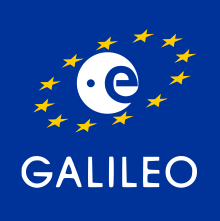 Un journal titrait il y a deux jours: « Galiléo (le système de géolocalisation européen) décolle enfin ». Ce soir il faudrait titrer: Galiléo replonge.
Un journal titrait il y a deux jours: « Galiléo (le système de géolocalisation européen) décolle enfin ». Ce soir il faudrait titrer: Galiléo replonge. 
 del.icio.us
del.icio.us
 Digg
Digg
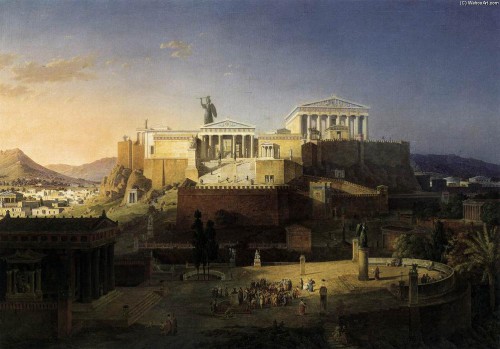
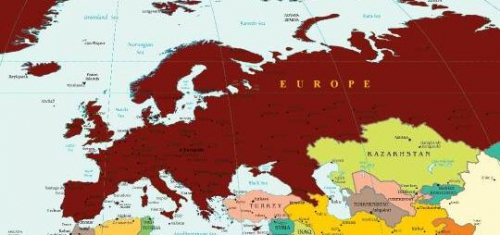

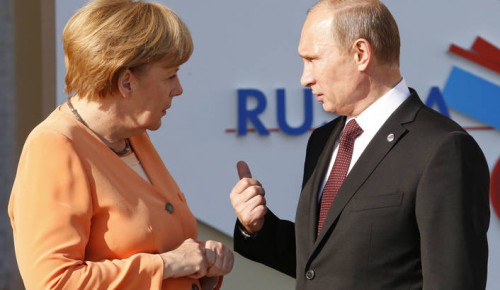

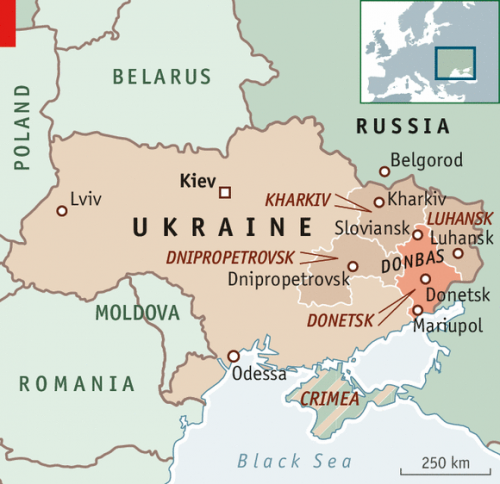

 Un ensayo imprescindible que aproxima al público hispanohablante a la realidad histórica y actual de Rusia
Un ensayo imprescindible que aproxima al público hispanohablante a la realidad histórica y actual de Rusia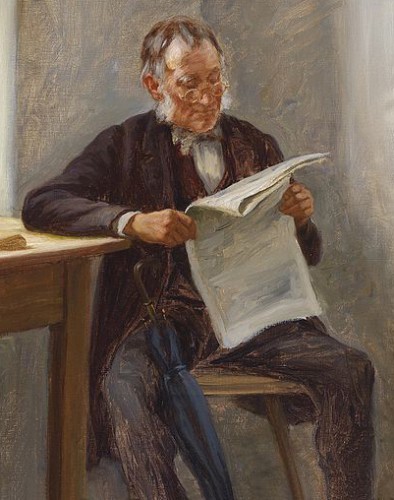
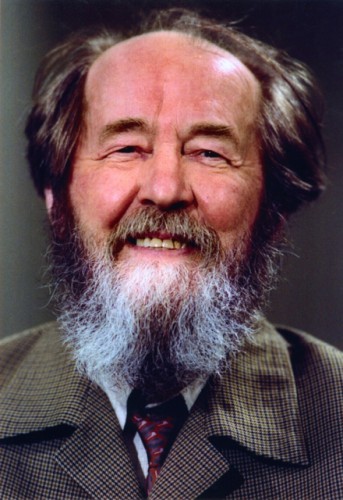 « Je suis presqu’à moitié Ukrainien et j’ai grandi parmi les sonorités de la langue ukrainienne. Je suis resté la majeure partie de mes années passées au front dans la sobre Biélorussie et j’ai aimé d’un amour pénétrant sa triste indigence et son peuple docile. Pour les uns et les autres je ne suis pas un étranger, je m’adresse à eux comme si j’étais l’un des leurs.
« Je suis presqu’à moitié Ukrainien et j’ai grandi parmi les sonorités de la langue ukrainienne. Je suis resté la majeure partie de mes années passées au front dans la sobre Biélorussie et j’ai aimé d’un amour pénétrant sa triste indigence et son peuple docile. Pour les uns et les autres je ne suis pas un étranger, je m’adresse à eux comme si j’étais l’un des leurs.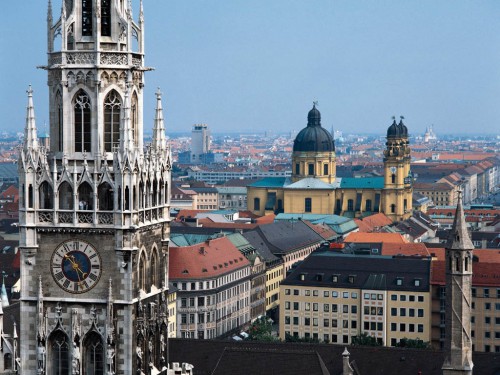

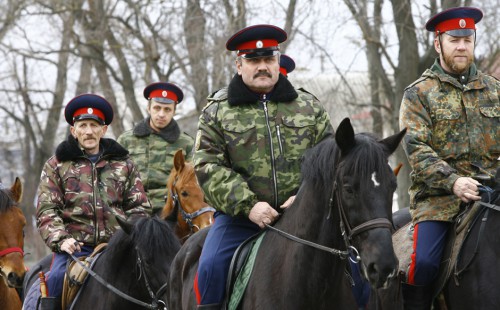



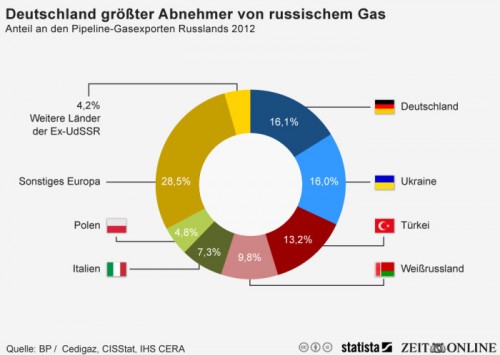


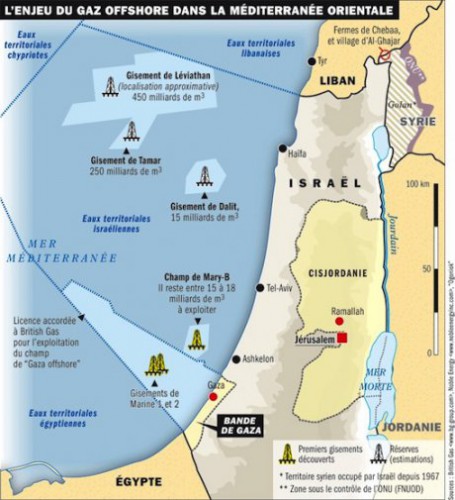
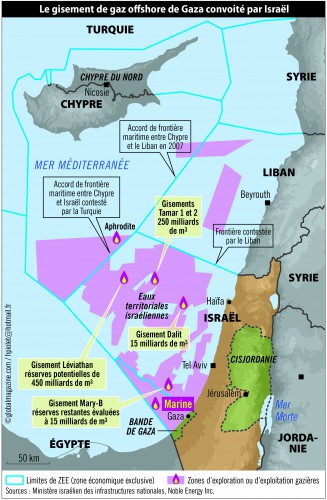 Per capire qual è uno degli obiettivi dell’attacco israeliano a Gaza bisogna andare in profondità, esattamente a 600 metri sotto il livello del mare, 30 km al largo delle sue coste. Qui, nelle acque territoriali palestinesi, c’è un grosso giacimento di gas naturale, Gaza Marine, stimato in 30 miliardi di metri cubi del valore di miliardi di dollari. Altri giacimenti di gas e petrolio, secondo una carta redatta dalla U.S. Geological Survey (agenzia del governo degli Stati uniti), si trovano sulla terraferma a Gaza e in Cisgiordania. Nel 1999, con un accordo firmato da Yasser Arafat, l’Autorità palestinese affida lo sfruttamento di Gaza Marine a un consorzio formato da British Gas Group e Consolidated Contractors (compagnia privata palestinese), rispettivamente col 60% e il 30% delle quote, nel quale il Fondo d’investimento dell’Autorità ha una quota del 10%. Vengono perforatidue pozzi, Gaza Marine-1 e Gaza Marine-2. Essi però non entrano mai in funzione, poiché sono bloccati da Israele, che pretende di avere tutto il gas a prezzi stracciati. Tramite l’ex premier Tony Blair, inviato del «Quartetto per il Medio Oriente», viene preparato un accordo con Israele che toglie ai palestinesi i tre quarti dei futuri introiti del gas, versando la parte loro spettante in un conto internazionale controllato da Washington e Londra. Ma, subito dopo aver vinto le elezioni nel 2006, Hamas rifiuta l’accordo, definendolo un furto, e chiede una sua rinegoziazione. Nel 2007, l’attuale ministro della difesa israeliano Moshe Ya’alon avverte che «il gas non può essere estratto senza una operazione militare che sradichi il controllo di Hamas a Gaza». Nel 2008, Israele lancia l’operazione «Piombo Fuso» contro Gaza. Nel settembre 2012 l’Autorità palestinese annuncia che, nonostante l’opposizione di Hamas, ha ripreso i negoziati sul gas con Israele. Due mesi dopo, l’ammissione della Palestina all’Onu quale «Stato osservatore non membro» rafforza la posizione dell’Autorità palestinese nei negoziati. Gaza Marine resta però bloccato, impedendo ai palestinesi di sfruttare la ricchezza naturale di cui dispongono. A questo punto l’Autorità palestinese imbocca un’altra strada. Il 23 gennaio 2014, nell’incontro del presidente palestinese Abbas col presidente russo Putin, viene discussa la possibilità di affidare alla russa Gazprom lo sfruttamento del giacimento di gas nelle acque di Gaza. Lo annuncia l’agenzia Itar-Tass, sottolineando che Russia e Palestina intendono rafforzare la cooperazione nel settore energetico. In tale quadro, oltre allo sfruttamento del giacimento di Gaza, si prevede quello di un giacimento petrolifero nei pressi della città palestinese di Ramallah in Cisgiordania. Nella stessa zona, la società russa Technopromexport è pronta a partecipare alla costruzione di un impianto termoelettrico della potenza di 200 MW. La formazione del nuovo governo palestinese di unità nazionale, il 2 giugno 2014, rafforza la possibilità che l’accordo tra Palestina e Russia vada in porto. Dieci giorni dopo, il 12 giugno, avviene il rapimento dei tre giovani israeliani, che vengono trovati uccisi il 30 giugno: il puntuale casus belli che innesca l’operazione «Barriera protettiva» contro Gaza. Operazione che rientra nella strategia di Tel Aviv, mirante a impadronirsi anche delle riserve energetiche dell’intero Bacino di levante, comprese quelle palestinesi, libanesi e siriane, e in quella di Washington che, sostenendo Israele, mira al controllo dell’intero Medio Oriente, impedendo che la Russia riacquisti influenza nella regione. Una miscela esplosiva, le cui vittime sono ancora una volta i palestinesi.
Per capire qual è uno degli obiettivi dell’attacco israeliano a Gaza bisogna andare in profondità, esattamente a 600 metri sotto il livello del mare, 30 km al largo delle sue coste. Qui, nelle acque territoriali palestinesi, c’è un grosso giacimento di gas naturale, Gaza Marine, stimato in 30 miliardi di metri cubi del valore di miliardi di dollari. Altri giacimenti di gas e petrolio, secondo una carta redatta dalla U.S. Geological Survey (agenzia del governo degli Stati uniti), si trovano sulla terraferma a Gaza e in Cisgiordania. Nel 1999, con un accordo firmato da Yasser Arafat, l’Autorità palestinese affida lo sfruttamento di Gaza Marine a un consorzio formato da British Gas Group e Consolidated Contractors (compagnia privata palestinese), rispettivamente col 60% e il 30% delle quote, nel quale il Fondo d’investimento dell’Autorità ha una quota del 10%. Vengono perforatidue pozzi, Gaza Marine-1 e Gaza Marine-2. Essi però non entrano mai in funzione, poiché sono bloccati da Israele, che pretende di avere tutto il gas a prezzi stracciati. Tramite l’ex premier Tony Blair, inviato del «Quartetto per il Medio Oriente», viene preparato un accordo con Israele che toglie ai palestinesi i tre quarti dei futuri introiti del gas, versando la parte loro spettante in un conto internazionale controllato da Washington e Londra. Ma, subito dopo aver vinto le elezioni nel 2006, Hamas rifiuta l’accordo, definendolo un furto, e chiede una sua rinegoziazione. Nel 2007, l’attuale ministro della difesa israeliano Moshe Ya’alon avverte che «il gas non può essere estratto senza una operazione militare che sradichi il controllo di Hamas a Gaza». Nel 2008, Israele lancia l’operazione «Piombo Fuso» contro Gaza. Nel settembre 2012 l’Autorità palestinese annuncia che, nonostante l’opposizione di Hamas, ha ripreso i negoziati sul gas con Israele. Due mesi dopo, l’ammissione della Palestina all’Onu quale «Stato osservatore non membro» rafforza la posizione dell’Autorità palestinese nei negoziati. Gaza Marine resta però bloccato, impedendo ai palestinesi di sfruttare la ricchezza naturale di cui dispongono. A questo punto l’Autorità palestinese imbocca un’altra strada. Il 23 gennaio 2014, nell’incontro del presidente palestinese Abbas col presidente russo Putin, viene discussa la possibilità di affidare alla russa Gazprom lo sfruttamento del giacimento di gas nelle acque di Gaza. Lo annuncia l’agenzia Itar-Tass, sottolineando che Russia e Palestina intendono rafforzare la cooperazione nel settore energetico. In tale quadro, oltre allo sfruttamento del giacimento di Gaza, si prevede quello di un giacimento petrolifero nei pressi della città palestinese di Ramallah in Cisgiordania. Nella stessa zona, la società russa Technopromexport è pronta a partecipare alla costruzione di un impianto termoelettrico della potenza di 200 MW. La formazione del nuovo governo palestinese di unità nazionale, il 2 giugno 2014, rafforza la possibilità che l’accordo tra Palestina e Russia vada in porto. Dieci giorni dopo, il 12 giugno, avviene il rapimento dei tre giovani israeliani, che vengono trovati uccisi il 30 giugno: il puntuale casus belli che innesca l’operazione «Barriera protettiva» contro Gaza. Operazione che rientra nella strategia di Tel Aviv, mirante a impadronirsi anche delle riserve energetiche dell’intero Bacino di levante, comprese quelle palestinesi, libanesi e siriane, e in quella di Washington che, sostenendo Israele, mira al controllo dell’intero Medio Oriente, impedendo che la Russia riacquisti influenza nella regione. Una miscela esplosiva, le cui vittime sono ancora una volta i palestinesi. 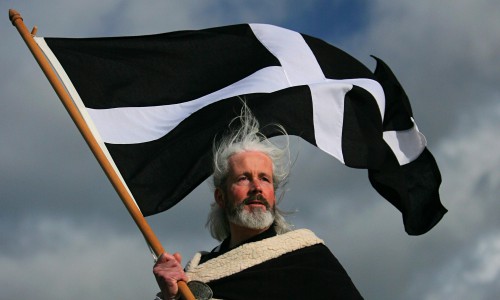
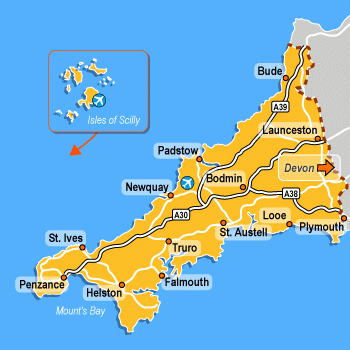 La Grande-Bretagne vient de reconnaître une nouvelle minorité nationale. Comme vient de l'annoncer le secrétaire d'Etat aux finances Danny Alexander (un Libéral-Démocrate), les habitants du Comté des Cornouailles, dans la pointe sud-occidentale de l'Angleterre, bénéficieront désormais des mêmes droits et de la même protection que les Ecossais, les Gallois et les Irlandais. Cela signifie surtout que le gouvernement et les corps officiels de l'Etat britannique doivent tenir désormais compte des intérêts spécifiques de la région quand ils prennent une décision. On ne voit pas encore très bien quels avantages concrets cette reconnaissance apportera au demi million d'habitants des Cornouailles. Le gouvernement de Londres a pris l'initiative de reconnaître la spécificité cornique suite aux accords-cadres de l'UE pour la protection des minorités.
La Grande-Bretagne vient de reconnaître une nouvelle minorité nationale. Comme vient de l'annoncer le secrétaire d'Etat aux finances Danny Alexander (un Libéral-Démocrate), les habitants du Comté des Cornouailles, dans la pointe sud-occidentale de l'Angleterre, bénéficieront désormais des mêmes droits et de la même protection que les Ecossais, les Gallois et les Irlandais. Cela signifie surtout que le gouvernement et les corps officiels de l'Etat britannique doivent tenir désormais compte des intérêts spécifiques de la région quand ils prennent une décision. On ne voit pas encore très bien quels avantages concrets cette reconnaissance apportera au demi million d'habitants des Cornouailles. Le gouvernement de Londres a pris l'initiative de reconnaître la spécificité cornique suite aux accords-cadres de l'UE pour la protection des minorités. 